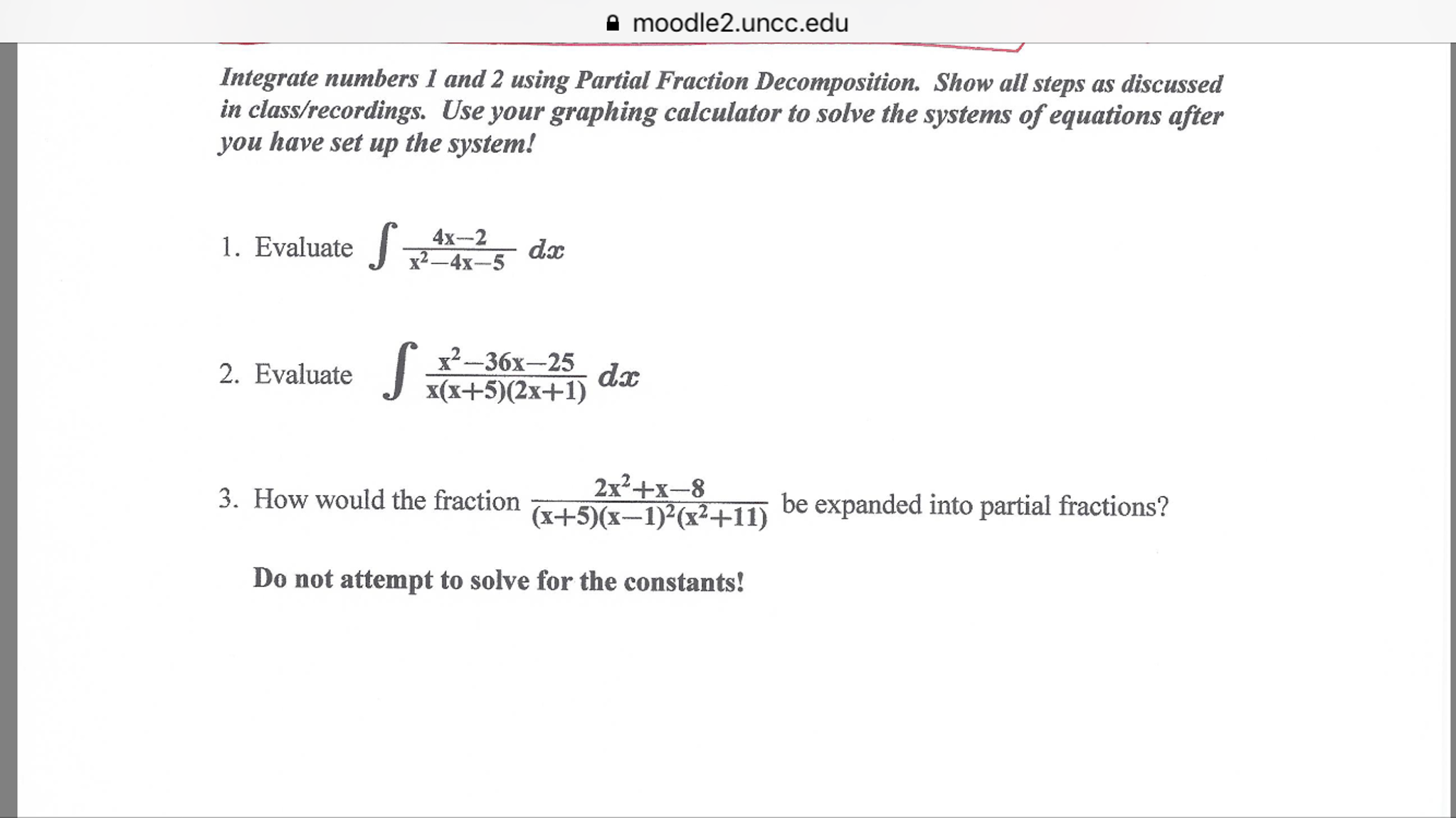

The method of partial fractions often makes it much easier-and faster-to find an integral, you do have to have some strong algebra skills to be able to find the partial fractions. Partial fraction decomposition only works for proper rational functions-rational functions where the degree of the numerator is less than the degree of the denominator. When to Use the Method of Partial Fractions The method of partial fractions gives you a result with a tenth of the work. You could choose to find the integral without partial fractions, but it would be a fairly lengthy process involving completing the square (where you rewrite a polynomial as a quantity raised to the power of “2”) and trigonometric substitution. Using the above example, we know that the integral of 1/x is ln |x| + c, so: Once you’ve “decomposed” the fraction, you can integrate the separate parts. You can also decompose a function the same way. It’s based on the fact that you can add fractions with a common denominator. The method of partial fractions decomposes (breaks apart) a rational function into a set of simpler rational functions.

Integrals > What is The Method of Partial Fractions? Remember that we just need to add the missing factors to each term.Feel like "cheating" at Calculus? Check out our Practically Cheating Calculus Handbook, which gives you hundreds of easy-to-follow answers in a convenient e-book. The partial fraction decomposition for this expression looks like this. Therefore, we will get two terms in the partial fraction decomposition from this factor. How many fraction terms are there in the partial fraction decomposition? This is, therefore, the reverse of the addition of rational expressions. Whenever an algebraic expression is broken down into a sum of two or more rational expressions, each part is called a partial fraction. Partially fractions are the fractions used to decompose rational expressions.
#DECOMPOSE INTO PARTIAL FRACTIONS CALCULATOR SERIES#
Its significance lies in the fact that it provides algorithms for various computations with rational functions, including explicit computations of antiderivatives, Taylor series expansions, inverse Z-transforms, and inverse Laplace transform. What is the purpose of partial fraction decomposition?


Special Cases of Partial Fraction Expansion What are the four cases of partial fraction decomposition?


 0 kommentar(er)
0 kommentar(er)
